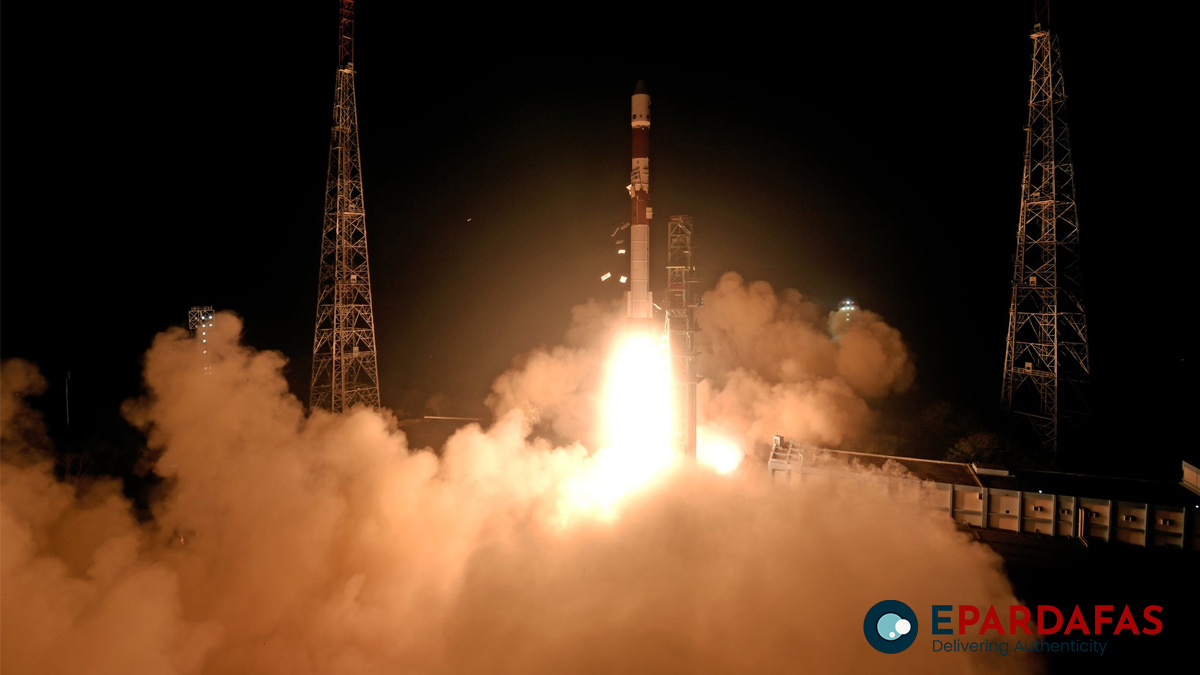
India Successfully Launches First Space Docking Mission, Pioneering New Technology
India has embarked on its first space docking mission, Space Docking Experiment (SpaDeX), propelling itself closer to becoming the fourth nation to achieve this advanced technological milestone. The mission, launched aboard the Indian Space Research Organisation’s (ISRO) trusted PSLV rocket, lifted off from the Satish Dhawan Space Centre at 1630 GMT on Monday.
The spacecraft reached an altitude of approximately 470 kilometers just 15 minutes after launch, with the mission director declaring the launch a success. SpaDeX is considered a cornerstone for India’s future space projects, such as satellite servicing and operations of the nation’s proposed space station.
SpaDeX involves the deployment of two small spacecraft, each weighing 220 kilograms, into a circular orbit 470 kilometers above Earth. The mission aims to demonstrate key docking capabilities, including the transfer of electric power between the docked spacecraft, essential for in-space robotics, composite spacecraft control, and payload operations after undocking.
The satellites are equipped with advanced payloads, such as imaging systems and devices for measuring electron and proton radiation, to provide critical data for upcoming human spaceflight missions.
ISRO Chairman S. Somanath stated that the actual docking tests are expected to occur by January 7. “The rocket has placed the satellites in the right orbit,” he confirmed. A successful demonstration would position India alongside the United States, Russia, and China as the only countries with this capability.
In a first for India, the rocket and satellites were integrated and tested by Ananth Technologies, a private company, marking a shift toward greater private sector involvement in the country’s space endeavors. Astrophysicist Somak Raychaudhary of Ashoka University noted the potential market expansion for ISRO, saying, “This technology not only joins India to an elite group of nations but also positions ISRO as a global partner for docking and in-space assembly missions.”
The mission also showcased the PSLV Orbital Experiment Module (POEM), an innovation by ISRO to repurpose the fourth stage of the PSLV rocket, which traditionally becomes space debris. This stage has been converted into an active un-crewed orbital laboratory for conducting various experiments.
“This initiative enables Indian startups, academic institutions, and research organizations to test space technologies affordably without needing to launch full satellites,” said Pawan Goenka, chairman of India’s space regulatory body.
SpaDeX marks a significant leap in India’s space capabilities, reinforcing its position as a global leader in space technology and innovation.
-Agency













Comments